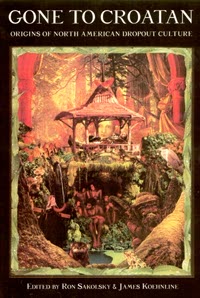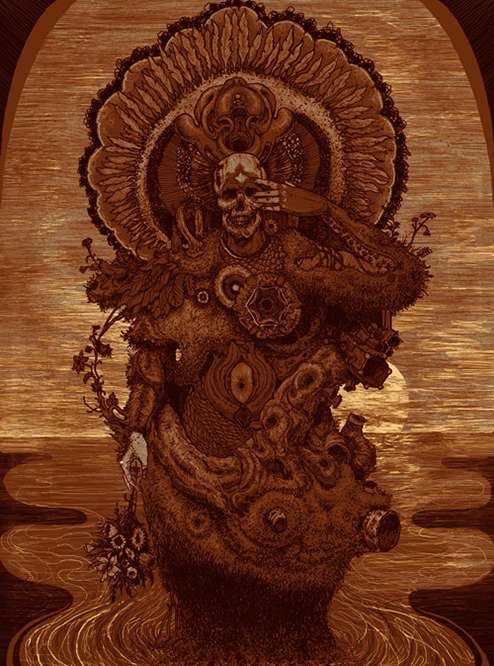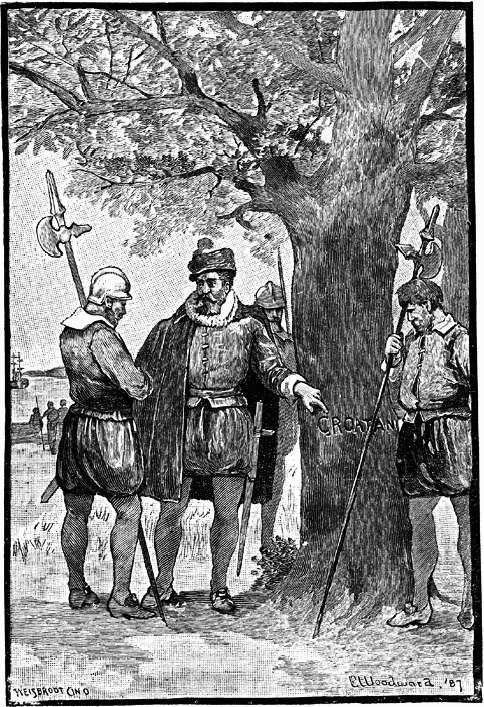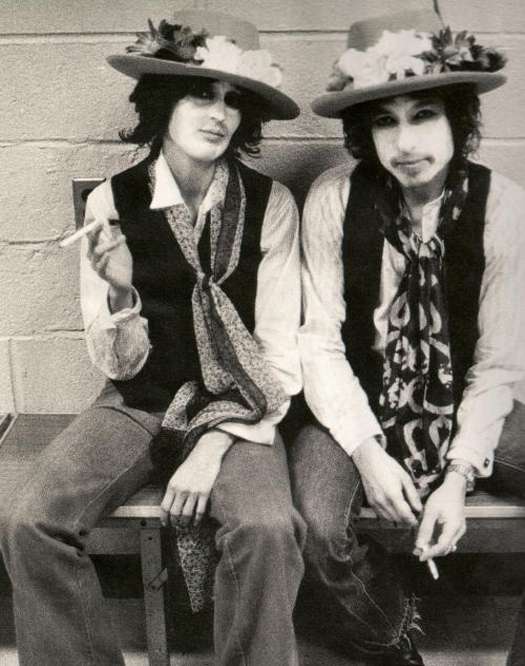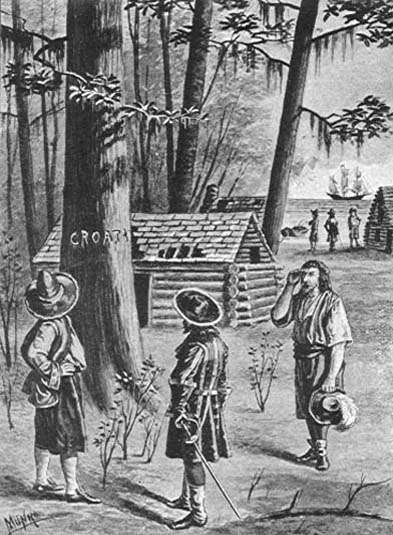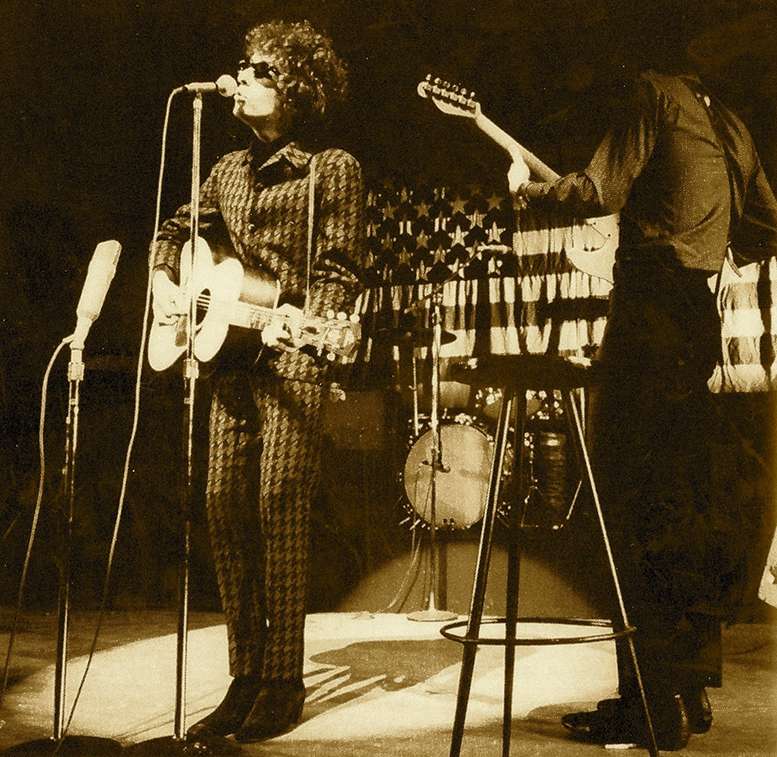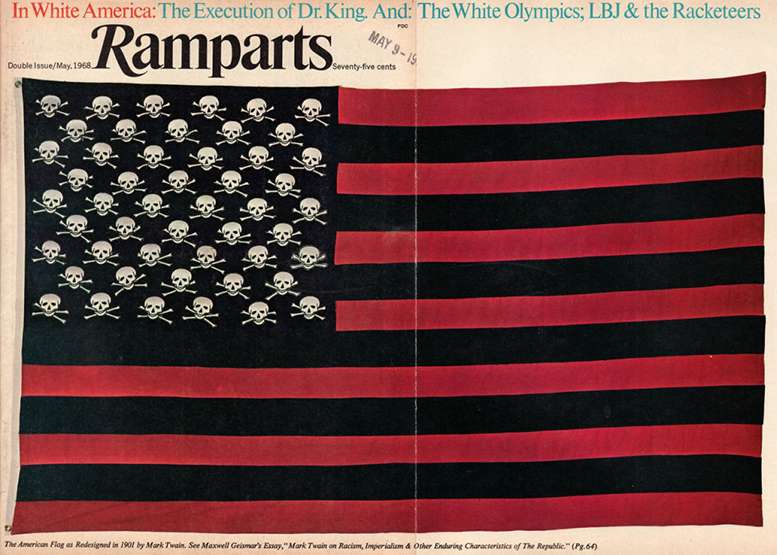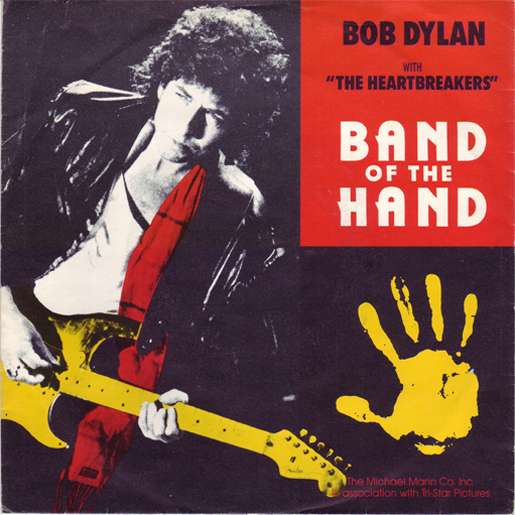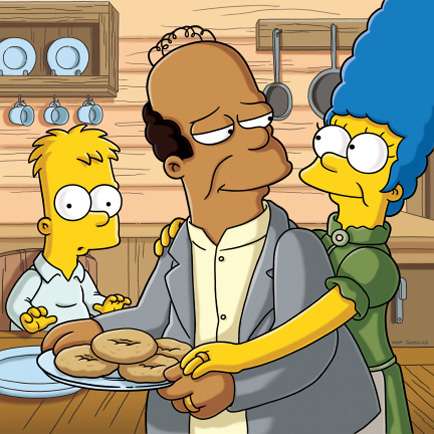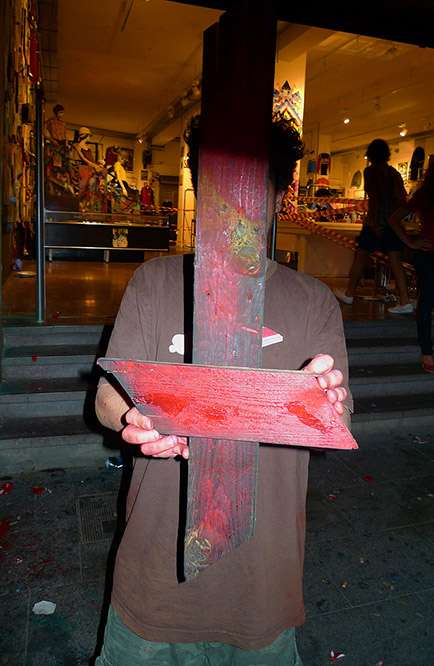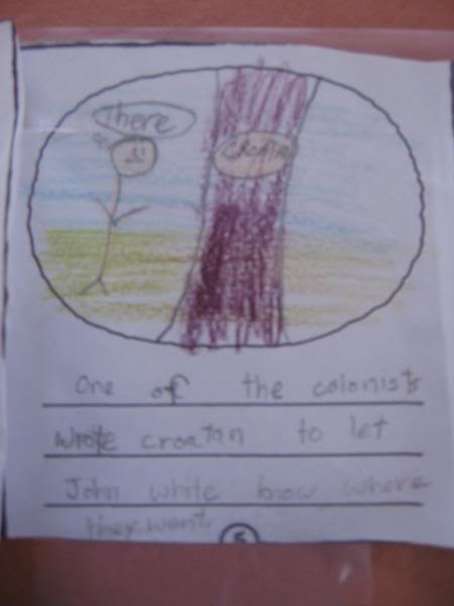How can slavery be described? Perhaps not at all by those who have not experienced it. The 1932 edition of a best-selling textbook by two northern liberal historians saw slavery as perhaps the Negro's "necessary transition to civilization." Economists or cliometricians (statistical historians) have tried to assess slavery by estimating how much money was spent on slaves for food and medical care. But can this describe the reality of slavery as it was to a human being who lived inside it? Are the conditions of slavery as important as the existence of slavery?
John Little, a former slave, wrote:
They say slaves are happy, because they laugh, and are merry. I myself and three or four others, have received two hundred lashes in the day, and had our feet in fetters; yet, at night, we would sing and dance, and make others laugh at the rattling of our chains. Happy men we must have been! We did it to keep down trouble, and to keep our hearts from being completely broken: that is as true as the gospel! Just look at it,-must not we have been very happy? Yet I have done it myself-I have cut capers in chains.
A record of deaths kept in a plantation journal (now in the University of North Carolina Archives) lists the ages and cause of death of all those who died on the plantation between 1850 and 1855. Of the thirty-two who died in that period, only four reached the age of sixty, four reached the age of fifty, seven died in their forties, seven died in their twenties or thirties, and nine died before they were five years old.
But can statistics record what it meant for families to be torn apart, when a master, for profit, sold a husband or a wife, a son or a daughter? In 1858, a slave named Abream Scriven was sold by his master, and wrote to his wife: "Give my love to my father and mother and tell them good Bye for me, and if we Shall not meet in this world I hope to meet in heaven."
One recent book on slavery (Robert Fogel and Stanley Engerman, Time on the Cross) looks at whippings in 1840-1842 on the Barrow plantation in Louisiana with two hundred slaves: "The records show that over the course of two years a total of 160 whippings were administered, an average of 0.7 whippings per hand per year. About half the hands were not whipped at all during the period." One could also say: "Half of all slaves were whipped." That has a different ring. That figure (0.7 per hand per year) shows whipping was infrequent for any individual. But looked at another way, once every four or five days, some slave was whipped.
Barrow as a plantation owner, according to his biographer, was no worse than the average. He spent money on clothing for his slaves, gave them holiday celebrations, built a dance hall for them. He also built a jail and "was constantly devising ingenious punishments, for he realized that uncertainty was an important aid in keeping his gangs well in hand."
The whippings, the punishments, were work disciplines. Still, Herbert Gutman (Slavery and the Numbers Game) finds, dissecting Fogel and Engerman's statistics, "Over all, four in five cotton pickers engaged in one or more disorderly acts in 1840-41.... As a group, a slightly higher percentage of women than men committed seven or more disorderly acts." Thus, Gutman disputes the argument of Fogel and Engerman that the Barrow plantation slaves became "devoted, hardworking responsible slaves who identified their fortunes with the fortunes of their masters."
Slave revolts in the United States were not as frequent or as large-scale as those in the Caribbean islands or in South America. Probably the largest slave revolt in the United States took place near New Orleans in 1811. Four to five hundred slaves gathered after a rising at the plantation of a Major Andry. Armed with cane knives, axes, and clubs, they wounded Andry, killed his son, and began marching from plantation to plantation, their numbers growing. They were attacked by U.S. army and militia forces; sixty-six were killed on the spot, and sixteen were tried and shot by a firing squad.
The conspiracy of Denmark Vesey, himself a free Negro, was thwarted before it could be carried out in 1822. The plan was to burn Charleston, South Carolina, then the sixth-largest city in the nation, and to initiate a general revolt of slaves in the area. Several witnesses said thousands of blacks were implicated in one way or another. Blacks had made about 250 pike heads and bayonets and over three hundred daggers, according to Herbert Aptheker's account. But the plan was betrayed, and thirty-five blacks, including Vesey, were hanged. The trial record itself, published in Charleston, was ordered destroyed soon after publication, as too dangerous for slaves to see.
Nat Turner's rebellion in Southampton County, Virginia, in the summer of 1831, threw the slaveholding South into a panic, and then into a determined effort to bolster the security of the slave system. Turner, claiming religious visions, gathered about seventy slaves, who went on a rampage from plantation to plantation, murdering at least fifty-five men, women, and children. They gathered supporters, but were captured as their ammunition ran out. Turner and perhaps eighteen others were hanged.
Did such rebellions set back the cause of emancipation, as some moderate abolitionists claimed at the time? An answer was given in 1845 by James Hammond, a supporter of slavery:
But if your course was wholly different-If you distilled nectar from your lips and discoursed sweetest music.... do you imagine you could prevail on us to give up a thousand millions of dollars in the value of our slaves, and a thousand millions of dollars more in the depreciation of our lands ... ?
The slaveowner understood this, and prepared.
Henry Tragic (The Southampton Slave Revolt of 1831), says:
In 1831, Virginia was an armed and garrisoned state... . With a total population of 1,211,405, the State of Virginia was able to field a militia force of 101,488 men, including cavalry, artillery, grenadiers, riflemen, and light infantry! It is true that this was a "paper army" in some ways, in that the county regiments were not fully armed and equipped, but it is still an astonishing commentary on the state of the public mind of the time. During a period when neither the State nor the nation faced any sort of exterior threat, we find that Virginia felt the need to maintain a security force roughly ten percent of the total number of its inhabitants: black and white, male and female, slave and free!
Rebellion, though rare, was a constant fear among slaveowners. Ulrich Phillips, a southerner whose American Negro Slavery is a classic study, wrote:
A great number of southerners at all times held the firm belief that the negro population was so docile, so little cohesive, and in the main so friendly toward the whites and so contented that a disastrous insurrection by them would be impossible. But on the whole, there was much greater anxiety abroad in the land than historians have told of....
Eugene Genovese, in his comprehensive study of slavery, Roll, Jordan, Roll, sees a record of "simultaneous accommodation and resistance to slavery." The resistance included stealing property, sabotage and slowness, killing overseers and masters, burning down plantation buildings, running away. Even the accommodation "breathed a critical spirit and disguised subversive actions." Most of this resistance, Genovese stresses, fell short of organized insurrection, but its significance for masters and slaves was enormous.
Running away was much more realistic than armed insurrection. During the 1850s about a thousand slaves a year escaped into the North, Canada, and Mexico. Thousands ran away for short periods. And this despite the terror facing the runaway. The dogs used in tracking fugitives "bit, tore, mutilated, and if not pulled off in time, killed their prey," Genovese says.
Harriet Tubman, born into slavery, her head injured by an overseer when she was fifteen, made her way to freedom alone as a young woman, then became the most famous conductor on the Underground Railroad. She made nineteen dangerous trips back and forth, often disguised, escorting more than three hundred slaves to freedom, always carrying a pistol, telling the fugitives, "You'll be free or die." She expressed her philosophy: "There was one of two things I had a right to, liberty or death; if I could not have one, I would have the other; for no man should take me alive...."
One overseer told a visitor to his plantation that "some negroes are determined never to let a white man whip them and will resist you, when you attempt it; of course you must kill them in that case."
One form of resistance was not to work so hard. W. E. B. Du Bois wrote, in The Gift of Black Folk:
As a tropical product with a sensuous receptivity to the beauty of the world, he was not as easily reduced to be the mechanical draft-horse which the northern European laborer became. He ... tended to work as the results pleased him and refused to work or sought to refuse when he did not find the spiritual returns adequate; thus he was easily accused of laziness and driven as a slave when in truth he brought to modern manual labor a renewed valuation of life.
Ulrich Phillips described "truancy," "absconding," "vacations without leave," and "resolute efforts to escape from bondage altogether." He also described collective actions:
Occasionally, however, a squad would strike in a body as a protest against severities. An episode of this sort was recounted in a letter of a Georgia overseer to his absent employer: "Sir, I write you a few lines in order to let you know that six of your hands bas left the plantation-every man but Jack. They displeased me with their work and I give some of them a few lashes, Tom with the rest. On Wednesday morning, they were missing."
The instances where poor whites helped slaves were not frequent, but sufficient to show the need for setting one group against the other. Genovese says:
The slaveholders ... suspected that non-slaveholders would encourage slave disobedience and even rebellion, not so much out of sympathy for the blacks as out of hatred for the rich planters and resentment of their own poverty. White men sometimes were linked to slave insurrectionary plots, and each such incident rekindled fears.
This helps explain the stern police measures against whites who fraternized with blacks.
Herbert Aptheker quotes a report to the governor of Virginia on a slave conspiracy in 1802: "I have just received information that three white persons are concerned in the plot; and they have arms and ammunition concealed under their houses, and were to give aid when the negroes should begin." One of the conspiring slaves said that it was "the common run of poor white people" who were involved.
In return, blacks helped whites in need. One black runaway told of a slave woman who had received fifty lashes of the whip for giving food to a white neighbor who was poor and sick.
When the Brunswick canal was built in Georgia, the black slaves and white Irish workers were segregated, the excuse being that they would do violence against one another. That may well have been true, but Fanny Kemble, the famous actress and wife of a planter, wrote in her journal:
But the Irish are not only quarrelers, and rioters, and fighters, and drinkers, and despisers of niggers-they are a passionate, impulsive, warm-hearted, generous people, much given to powerful indignations, which break out suddenly when not compelled to smoulder sullenly-pestilent sympathizers too, and with a sufficient dose of American atmospheric air in their lungs, properly mixed with a right proportion of ardent spirits, there is no saying but what they might actually take to sympathy with the slaves, and I leave you to judge of the possible consequences. You perceive, I am sure, that they can by no means be allowed to work together on the Brunswick Canal.
The need for slave control led to an ingenious device, paying poor whites-themselves so troublesome for two hundred years of southern history-to be overseers of black labor and therefore buffers for black hatred.
Religion was used for control. A book consulted by many planters was the Cotton Plantation Record and Account Book, which gave these instructions to overseers: "You will find that an hour devoted every Sabbath morning to their moral and religious instruction would prove a great aid to you in bringing about a better state of things amongst the Negroes."
As for black preachers, as Genovese puts it, "they had to speak a language defiant enough to hold the high-spirited among their flock but neither so inflammatory as to rouse them to battles they could not win nor so ominous as to arouse the ire of ruling powers." Practicality decided: "The slave communities, embedded as they were among numerically preponderant and militarily powerful whites, counseled a strategy of patience, of acceptance of what could not be helped, of a dogged effort to keep the black community alive and healthy-a strategy of survival that, like its African prototype, above all said yes to life in this world."
It was once thought that slavery had destroyed the black family. And so the black condition was blamed on family frailty, rather than on poverty and prejudice. Blacks without families, helpless, lacking kinship and identity, would have no will to resist. But interviews with ex-slaves, done in the 1930s by the Federal Writers Project of the New Deal for the Library of Congress, showed a different story, which George Rawick summarizes (From Sundown to Sunup):
The slave community acted like a generalized extended kinship system in which all adults looked after all children and there was little division between "my children for whom I'm responsible" and "your children for whom you're responsible." ... A kind of family relationship in which older children have great responsibility for caring for younger siblings is obviously more functionally integrative and useful for slaves than the pattern of sibling rivalry and often dislike that frequently comes out of contemporary middle-class nuclear families composed of highly individuated persons. ... Indeed, the activity of the slaves in creating patterns of family life that were functionally integrative did more than merely prevent the destruction of personality. ... It was part and parcel, as we shall see, of the social process out of which came black pride, black identity, black culture, the black community, and black rebellion in America.
Old letters and records dug out by historian Herbert Gutman (The Black Family in Slavery and Freedom) show the stubborn resistance of the slave family to pressures of disintegration, A woman wrote to her son from whom she had been separated for twenty years: "I long to see you in my old age.. .. Now my dear son I pray you to come and see your dear old Mother. ... I love you Cato you love your Mother-You are my only son. ..."
And a man wrote to his wife, sold away from him with their children: "Send me some of the children's hair in a separate paper with their names on the paper. ... I had rather anything to had happened to me most than ever to have been parted from you and the children. . . . Laura I do love you the same...."
Going through records of slave marriages, Gutman found how high was the incidence of marriage among slave men and women, and how stable these marriages were. He studied the remarkably complete records kept on one South Carolina plantation. He found a birth register of two hundred slaves extending from the eighteenth century to just before the Civil War; it showed stable kin networks, steadfast marriages, unusual fidelity, and resistance to forced marriages.
Slaves hung on determinedly to their selves, to their love of family, their wholeness. A shoemaker on the South Carolina Sea Islands expressed this in his own way: "I'se lost an arm but it hasn't gone out of my brains."
This family solidarity carried into the twentieth century. The remarkable southern black farmer Nate Shaw recalled that when his sister died, leaving three children, his father proposed sharing their care, and he responded:
That suits me. Papa. . .. Let's handle em like this; don't get the two little boys, the youngest ones, off at your house and the oldest one be at my house and we bold these little boys apart and won't bring em to see one another. I'll bring the little boy that I keep, the oldest one, around to your home amongst the other two. And you forward the others to my house and let em grow up knowin that they are brothers. Don't keep em separated in a way that they'll forget about one another. Don't do that, Papa.
Also insisting on the strength of blacks even under slavery, Lawrence Levine (Black Culture and Black Consciousness) gives a picture of a rich culture among slaves, a complex mixture of adaptation and rebellion, through the creativity of stories and songs:
We raise de wheat,
Dey gib us de corn;
We bake de bread,
Dey gib us de crust,
We sif de meal,
Dey gib us de huss;
We peel de meat,
Dey gib us de skin;
And dat's de way
Dey take us in;
We skim de pot,
Dey gib us de liquor,
An say dat's good enough for nigger.
There was mockery. The poet William Cullen Bryant, after attending a corn shucking in 1843 in South Carolina, told of slave dances turned into a pretended military parade, "a sort of burlesque of our militia trainings. . . ."
Spirituals often had double meanings. The song "O Canaan, sweet Canaan, I am bound for the land of Canaan" often meant that slaves meant to get to the North, their Canaan. During the Civil War, slaves began to make up new spirituals with bolder messages: "Before I'd be a slave, I'd be buried in my grave, and go home to my Lord and be saved." And the spiritual "Many Thousand Go":
No more peck o ' corn for me, no more, no more,
No more driver's lash far me, no more, no more. . . .
Levine refers to slave resistance as "pre-political," expressed in countless ways in daily life and culture. Music, magic, art, religion, were all ways, he says, for slaves to hold on to their humanity.
While southern slaves held on, free blacks in the North (there were about 130,000 in 1830, about 200,000 in 1850) agitated for the abolition of slavery. In 1829, David Walker, son of a slave, but born free in North Carolina, moved to Boston, where he sold old clothes. The pamphlet he wrote and printed, Walker's Appeal, became widely known. It infuriated southern slaveholders; Georgia offered a reward of $10,000 to anyone who would deliver Walker alive, and $1,000 to anyone who would kill him. It is not hard to understand why when you read his Appeal.
There was no slavery in history, even that of the Israelites in Egypt, worse than the slavery of the black man in America, Walker said. "... show me a page of history, either sacred or profane, on which a verse can he found, which maintains, that the Egyptians heaped the insupportable insult upon the children of Israel, by telling them that they were not of the human family."
Walker was scathing to his fellow blacks who would assimilate: "I would wish, candidly ... to be understood, that I would not give a pinch of snuff to be married to any white person I ever saw in all the days of my life."
Blacks must fight for their freedom, he said:
Let our enemies go on with their butcheries, and at once fill up their cup. Never make an attempt to gain our freedom or natural right from under our cruel oppressors and murderers, until you see your way clear-when that hour arrives and you move, be not afraid or dismayed. . .. God has been pleased to give us two eyes, two hands, two feet, and some sense in our heads as well as they. They have no more right to hold us in slavery than we have to hold them... . Our sufferings will come to an end, in spite of all the Americans this side of eternity. Then we will want all the learning and talents among ourselves, and perhaps more, to govern ourselves.-"Every dog must have its day," the American's is coming to an end.
One summer day in 1830, David Walker was found dead near the doorway of his shop in Boston.
Some born in slavery acted out the unfulfilled desire of millions. Frederick Douglass, a slave, sent to Baltimore to work as a servant and as a laborer in the shipyard, somehow learned to read and write, and at twenty-one, in the year 1838, escaped to the North, where he became the most famous black man of his time, as lecturer, newspaper editor, writer. In his autobiography, Narrative of the Life of Frederick Douglass, he recalled his first childhood thoughts about his condition:
Why am I a slave? Why are some people slaves, and others masters? Was there ever a time when this was not so? How did the relation commence?
Once, however, engaged in the inquiry, I was not very long in finding out the true solution of the matter. It was not color, but crime, not God, but man, that afforded the true explanation of the existence of slavery; nor was I long in finding out another important truth, viz: what man can make, man can unmake. .. .
I distinctly remember being, even then, most strongly impressed with the idea of being a free man some day. This cheering assurance was an inborn dream of my human nature-a constant menace to slavery-and one which all the powers of slavery were unable to silence or extinguish.
The Fugitive Slave Act passed in 1850 was a concession to the southern states in return for the admission of the Mexican war territories (California, especially) into the Union as nonslave states. The Act made it easy for slaveowners to recapture ex-slaves or simply to pick up blacks they claimed had run away. Northern blacks organized resistance to the Fugitive Slave Act, denouncing President Fillmore, who signed it, and Senator Daniel Webster, who supported it. One of these was J. W. Loguen, son of a slave mother and her white owner. He had escaped to freedom on his master's horse, gone to college, and was now a minister in Syracuse, New York. He spoke to a meeting in that city in 1850:
The time has come to change the tones of submission into tones of defiance-and to tell Mr. Fillmore and Mr. Webster, if they propose to execute this measure upon us, to send on their blood-hounds. ... I received my freedom from Heaven, and with it came the command to defend my title to it. ... I don't respect this law-I don't fear it-I won't obey it! It outlaws me, and I outlaw it.... I will not live a slave, and if force is employed to re-enslave me, I shall make preparations to meet the crisis as becomes a man. ... Your decision tonight in favor of resistance will give vent to the spirit of liberty, and it will break the bands of party, and shout for joy all over the North. ... Heaven knows that this act of noble daring will break out somewhere-and may God grant that Syracuse be the honored spot, whence it shall send an earthquake voice through the land!
The following year, Syracuse had its chance. A runaway slave named Jerry was captured and put on trial. A crowd used crowbars and a battering ram to break into the courthouse, defying marshals with drawn guns, and set Jerry free.
Loguen made his home in Syracuse a major station on the Underground Railroad. It was said that he helped 1,500 slaves on their way to Canada. His memoir of slavery came to the attention of his former mistress, and she wrote to him, asking him either to return or to send her $1,000 in compensation. Loguen's reply to her was printed in the abolitionist newspaper, The Liberator:
Mrs. Sarah Logue. .. . You say you have offers to buy me, and that you shall sell me if I do not send you $1000, and in the same breath and almost in the same sentence, you say, "You know we raised you as we did our own children." Woman, did you raise your own children for the market? Did you raise them for the whipping post? Did you raise them to be driven off, bound to a coffle in chains? . .. Shame on you!
But you say I am a thief, because I took the old mare along with me. Have you got to learn that I had a better right to the old mare, as you call her, than Manasseth Logue had to me? Is it a greater sin for me to steal his horse, than it was for him to rob my mother's cradle, and steal me? . .. Have you got to learn that human rights are mutual and reciprocal, and if you take my liberty and life, you forfeit your own liberty and life? Before God and high heaven, is there a law for one man which is not a law for every other man?
If you or any other speculator on my body and rights, wish to know how I regard my rights, they need but come here, and lay their hands on me to enslave me.. . .
Yours, etc. J. W. Loguen
Frederick Douglass knew that the shame of slavery was not just the South's, that the whole nation was complicit in it. On the Fourth of July, 1852, he gave an Independence Day address:
Fellow Citizens: Pardon me, and allow me to ask, why am I called upon to speak here today? What have I or those I represent to do with your national independence? Are the great principles of political freedom and of natural justice, embodied in that Declaration of Independence, extended to us? And am I, therefore, called upon to bring our humble offering to the national altar, and to confess the benefits, and express devout gratitude for the blessings resulting from your independence to us?.. .
What to the American slave is your Fourth of July? I answer, a day that reveals to him more than all other days of the year, the gross injustice and cruelty to which he is the constant victim. 'In him your celebration is a sham; your boasted liberty an unholy license; your national greatness, swelling vanity; your sounds of rejoicing are empty and heartless; your denunciation of tyrants, brass- fronted impudence; your shouts of liberty and equality, hollow mockery; your prayers and hymns, your sermons and thanksgivings, with all your religious parade and solemnity, are to him mere bombast, fraud, deception, impiety, and hypocrisy-a thin veil to cover up crimes which would disgrace a nation of savages. There is not a nation of the earth guilty of practices more shocking and bloody than are the people of these United States at this very hour.
Go where you may, search where you will, roam through all the monarchies and despotisms of the Old World, travel through South America, search out every abuse and when you have found the last, lay your facts by the side of the everyday practices of this nation, and you will say with me that, for revolting barbarity and shameless hypocrisy, America reigns without a rival... .
Ten years after Nat Turner's rebellion, there was no sign of black insurrection in the South. But that year, 1841, one incident took place which kept alive the idea of rebellion. Slaves being transported on a ship, the Creole, overpowered the crew, killed one of them, and sailed into the British West Indies (where slavery had been abolished in 1833). England refused to return the slaves (there was much agitation in England against American slavery), and this led to angry talk in Congress of war with England, encouraged by Secretary of State Daniel Webster. The Colored Peoples Press denounced Webster's "bullying position," and, recalling the Revolutionary War and the War of 1812, wrote:
If war be declared . .. Will we fight in defense of a government which denies us the most precious right of citizenship? .. . The States in which we dwell have twice availed themselves of our voluntary services, and have repaid us with chains and slavery. Shall we a third time kiss the foot that crushes us? If so, we deserve our chains.
As the tension grew, North and South, blacks became more militant. Frederick Douglass spoke in 1857:
Let me give you a word of the philosophy of reforms. The whole history of the progress of human liberty shows that all concessions yet made to her august claims have been born of struggle. ... If there is no struggle there is no progress. Those who profess to favor freedom and yet deprecate agitation, are men who want crops without plowing up the ground. They want rain without thunder and lightning. They want the ocean without the awful roar of its many waters. The struggle may be a moral one; or it may be a physical one; or it may be both moral and physical, but it must be a struggle. Power concedes nothing without a demand. It never did and it never will... .
There were tactical differences between Douglass and William Lloyd Garrison, white abolitionist and editor of The Liberator-differences between black and white abolitionists in general. Blacks were more willing to engage in armed insurrection, but also more ready to use existing political devices-the ballot box, the Constitution-anything to further their cause. They were not as morally absolute in their tactics as the Garrisonians. Moral pressure would not do it alone, the blacks knew; it would take all sorts of tactics, from elections to rebellion.
How ever-present in the minds of northern Negroes was the question of slavery is shown by black children in a Cincinnati school, a private school financed by Negroes. The children were responding to the question "What do you think most about?" Only five answers remain in the records, and all refer to slavery. A seven-year-old child wrote:
Dear schoolmates, we are going next summer to buy a farm and to work part of the day and to study the other part if we live to see it and come home part of the day to see our mothers and sisters and cousins if we are got any and see our kind folks and to be good boys and when we get a man to get the poor slaves from bondage. And I am sorrow to hear that the boat... went down with 200 poor slaves from up the river. Oh how sorrow I am to hear that, it grieves my heart so drat I could faint in one minute.
White abolitionists did courageous and pioneering work, on the lecture platform, in newspapers, in the Underground Railroad. Black abolitionists, less publicized, were the backbone of the antislavery movement. Before Garrison published his famous Liberator in Boston in 1831, the first national convention of Negroes had been held, David Walker had already written his "Appeal," and a black abolitionist magazine named Freedom's Journal had appeared. Of The Liberator's first twenty-five subscribers, most were black.
Blacks had to struggle constantly with the unconscious racism of white abolitionists. They also had to insist on their own independent voice. Douglass wrote for The Liberator, but in 1847 started his own newspaper in Rochester, North Star, which led to a break with Garrison. In 1854, a conference of Negroes declared: ". . . it is emphatically our battle; no one else can fight it for us. . . . Our relations to the Anti-Slavery movement must be and are changed. Instead of depending upon it we must lead it."
Certain black women faced the triple hurdle-of being abolitionists in a slave society, of being black among white reformers, and of being women in a reform movement dominated by men. When Sojourner Truth rose to speak in 1853 in New York City at the Fourth National Woman's Rights Convention, it all came together. There was a hostile mob in the hall shouting, jeering, threatening. She said:
I know that it feels a kind o' hissin' and ticklin' like to see a colored woman get up and tell you about things, and Woman's Rights. We have all been thrown down so low that nobody thought we'd ever get up again; but ... we will come up again, and now I'm here. . . . we'll have our rights; see if we don't; and you can't stop us from them; see if you can. You may hiss as much as yon like, but it is comin'. ... I am sittin' among you to watch; and every once and awhile I will come out and tell you what time of night it is. ...
After Nat Turner's violent uprising and Virginia's bloody repression, the security system inside the South became tighter. Perhaps only an outsider could hope to launch a rebellion. It was such a person, a white man of ferocious courage and determination, John Brown, whose wild scheme it was to seize the federal arsenal at Harpers Ferry, Virginia, and then set off a revolt of slaves through the South.
Harriet Tubman, 5 feet tall, some of her teeth missing, a veteran of countless secret missions piloting blacks out of slavery, was involved with John Brown and his plans. But sickness prevented her from joining him. Frederick Douglass too had met with Brown. He argued against the plan from the standpoint of its chances of success, but he admired the ailing man of sixty, tall, gaunt, white- haired.
Douglass was right; the plan would not work. The local militia, joined by a hundred marines under the command of Robert E. Lee, surrounded the insurgents. Although his men were dead or captured, John Brown refused to surrender: he barricaded himself in a small brick building near the gate of the armory. The troops battered down a door; a marine lieutenant moved in and struck Brown with his sword. Wounded, sick, he was interrogated. W. E. B. Du Bois, in his book John Brown, writes:
Picture the situation: An old and blood-bespattered man, half-dead from the wounds inflicted but a few hours before; a man lying in the cold and dirt, without sleep for fifty-five nerve-wrecking hours, without food for nearly as long, with the dead bodies of his two sons almost before his eyes, the piled corpses of his seven slain comrades near and afar, a wife and a bereaved family listening in vain, and a Lost Cause, the dream of a lifetime, lying dead in his heart. . . .
Lying there, interrogated by the governor of Virginia, Brown said: "You had better-all you people at the South-prepare yourselves for a settlement of this question.. . . You may dispose of me very easily-I am nearly disposed of now, but this question is still to be settled,-this Negro question, I mean; the end of that is not yet."
Du Bois appraises Brown's action:
If his foray was the work of a handful of fanatics, led by a lunatic and repudiated by the slaves to a man, then the proper procedure would have been to ignore the incident, quietly punish the worst offenders and either pardon the misguided leader or send him to an asylum... . While insisting that the raid was too hopelessly and ridiculously small to accomplish anything .. . the state nevertheless spent $250,000 to punish the invaders, stationed from one to three thousand soldiers in the vicinity and threw the nation into turmoil.
In John Brown's last written statement, in prison, before he was hanged, he said: "I, John Brown, am quite certain that the crimes of this guilty land will never be purged away but with blood." Ralph Waldo Emerson, not an activist himself, said of the execution of John Brown: "He will make the gallows holy as the cross."
Of the twenty-two men in John Brown's striking force, five were black. Two of these were killed on the spot, one escaped, and two were hanged by the authorities. Before his execution, John Copeland wrote to his parents:
Remember that if I must die I die in trying to liberate a few of my poor and oppressed people from my condition of servitude which Cod in his Holy Writ has hurled his most bitter denunciations against ...
I am not terrified by the gallows....
I imagine that I hear you, and all of you, mother, father, sisters, and brothers, say-"No, there is not a cause for which we, with less sorrow, could see you die." Believe me when I tell you, that though shut up in prison and under sentence of death, I have spent more happy hours here, and .. . I would almost as lief the now as at any time, for I feel that I am prepared to meet my Maker. .. .
John Brown was executed by the state of Virginia with the approval of the national government. It was the national government which, while weakly enforcing the law ending the slave trade, sternly enforced the laws providing for the return of fugitives to slavery. It was the national government that, in Andrew Jackson's administration, collaborated with the South to keep abolitionist literature out of the mails in the southern states. It was the Supreme Court of the United States that declared in 1857 that the slave Dred Scott could not sue for his freedom because he was not a person, but property.
Such a national government would never accept an end to slavery by rebellion. It would end slavery only under conditions controlled by whites, and only when required by the political and economic needs of the business elite of the North. It was Abraham Lincoln who combined perfectly the needs of business, the political ambition of the new Republican party, and the rhetoric of humanitarianism. He would keep the abolition of slavery not at the top of his list of priorities, but close enough to the top so it could be pushed there temporarily by abolitionist pressures and by practical political advantage.
Lincoln could skillfully blend the interests of the very rich and the interests of the black at a moment in history when these interests met. And he could link these two with a growing section of Americans, the white, up-and-coming, economically ambitious, politically active middle class. As Richard Hofstadter puts it:
Thoroughly middle class in his ideas, he spoke for those millions of Americans who had begun their lives as hired workers-as farm hands, clerks, teachers, mechanics, flatboat men, and rail- splitters-and had passed into the ranks of landed farmers, prosperous grocers, lawyers, merchants, physicians and politicians.
Lincoln could argue with lucidity and passion against slavery on moral grounds, while acting cautiously in practical politics. He believed "that the institution of slavery is founded on injustice and bad policy, but that the promulgation of abolition doctrines tends to increase rather than abate its evils." (Put against this Frederick Douglass's statement on struggle, or Garrison's "Sir, slavery will not be overthrown without excitement, a most tremendous excitement") Lincoln read the Constitution strictly, to mean that Congress, because of the Tenth Amendment (reserving to the states powers not specifically given to the national government), could not constitutionally bar slavery in the states.
When it was proposed to abolish slavery in the District of Columbia, which did not have the rights of a state that was directly under the jurisdiction of Congress, Lincoln said this would be Constitutional, but it should not be done unless the people in the District wanted it. Since most there were white, this killed the idea. As Hofstadter said of Lincoln's statement, it "breathes the fire of an uncompromising insistence on moderation."
Lincoln refused to denounce the Fugitive Slave Law publicly. He wrote to a friend: "I confess I hate to see the poor creatures hunted down . .. but I bite my lips and keep quiet." And when he did propose, in 1849, as a Congressman, a resolution to abolish slavery in the District of Columbia, he accompanied this with a section requiring local authorities to arrest and return fugitive slaves coming into Washington. (This led Wendell Phillips, the Boston abolitionist, to refer to him years later as "that slavehound from Illinois.") He opposed slavery, but could not see blacks as equals, so a constant theme in his approach was to free the slaves and to send them back to Africa.
In his 1858 campaign in Illinois for the Senate against Stephen Douglas, Lincoln spoke differently depending on the views of his listeners (and also perhaps depending on how close it was to the election). Speaking in northern Illinois in July (in Chicago), he said:
Let us discard all this quibbling about this man and the other man, this race and that race and the other race being inferior, and therefore they must be placed in an inferior position. Let us discard all these things, and unite as one people throughout this land, until we shall once more stand up declaring that all men are created equal.
Two months later in Charleston, in southern Illinois, Lincoln told his audience:
I will say, then, that I am not, nor ever have been, in favor of bringing about in any way the social and political equality of the white and black races (applause); that I am not, nor ever have been, in favor of making voters or jurors of negroes, nor of qualifying them to hold office, nor to intermarry with white people.. . .
And inasmuch as they cannot so live, while they do remain together there must be the position of superior and inferior, and I as much as any other man am in favor of having the superior position assigned to the white race.
Behind the secession of the South from the Union, after Lincoln was elected President in the fall of 1860 as candidate of the new Republican party, was a long series of policy clashes between South and North. The clash was not over slavery as a moral institution-most northerners did not care enough about slavery to make sacrifices for it, certainly not the sacrifice of war. It was not a clash of peoples (most northern whites were not economically favored, not politically powerful; most southern whites were poor farmers, not decisionmakers) but of elites. The northern elite wanted economic expansion-free land, free labor, a free market, a high protective tariff for manufacturers, a bank of the United States. The slave interests opposed all that; they saw Lincoln and the Republicans as making continuation of their pleasant and prosperous way of life impossible in the future.
So, when Lincoln was elected, seven southern states seceded from the Union. Lincoln initiated hostilities by trying to repossess the federal base at Fort Sumter, South Carolina, and four more states seceded. The Confederacy was formed; the Civil War was on.
Lincoln's first Inaugural Address, in March 1861, was conciliatory toward the South and the seceded states: "I have no purpose, directly or indirectly, to interfere with the institution of slavery in the States where it exists. I believe I have no lawful right to do so, and I have no inclination to do so." And with the war four months on, when General John C. Fremont in Missouri declared martial law and said slaves of owners resisting the United States were to be free, Lincoln countermanded this order. He was anxious to hold in the Union the slave states of Maryland, Kentucky, Missouri, and Delaware.
It was only as the war grew more bitter, the casualties mounted, desperation to win heightened, and the criticism of the abolitionists threatened to unravel the tattered coalition behind Lincoln that he began to act against slavery. Hofstadter puts it this way: "Like a delicate barometer, he recorded the trend of pressures, and as the Radical pressure increased he moved toward the left." Wendell Phillips said that if Lincoln was able to grow "it is because we have watered him."
Racism in the North was as entrenched as slavery in the South, and it would take the war to shake both. New York blacks could not vote unless they owned $250 in property (a qualification not applied to whites). A proposal to abolish this, put on the ballot in 1860, was defeated two to one (although Lincoln carried New York by 50,000 votes). Frederick Douglass commented: "The black baby of Negro suffrage was thought too ugly to exhibit on so grand an occasion. The Negro was stowed away like some people put out of sight their deformed children when company comes."
Wendell Phillips, with all his criticism of Lincoln, recognized the possibilities in his election. Speaking at the Tremont Temple in Boston the day after the election, Phillips said:
If the telegraph speaks truth, for the first time in our history the slave has chosen a President of the United States. . . . Not an Abolitionist, hardly an antislavery man, Mr. Lincoln consents to represent an antislavery idea. A pawn on the political chessboard, his value is in his position; with fair effort, we may soon change him for knight, bishop or queen, and sweep the board. (Applause)
Conservatives in the Boston upper classes wanted reconciliation with the South. At one point they stormed an abolitionist meeting at that same Tremont Temple, shortly after Lincoln's election, and asked that concessions be made to the South "in the interests of commerce, manufactures, agriculture."
The spirit of Congress, even after the war began, was shown in a resolution it passed in the summer of 1861, with only a few dissenting votes: "... this war is not waged . . . for any purpose of... overthrowing or interfering with the rights of established institutions of those states, but... to preserve the Union."
The abolitionists stepped up their campaign. Emancipation petitions poured into Congress in 1861 and 1862. In May of that year, Wendell Phillips said: "Abraham Lincoln may not wish it; he cannot prevent it; the nation may not will it, but the nation cannot prevent it. I do not care what men want or wish; the negro is the pebble in the cog-wheel, and the machine cannot go on until you get him out."
In July Congress passed a Confiscation Act, which enabled the freeing of slaves of those fighting the Union. But this was not enforced by the Union generals, and Lincoln ignored the nonenforcement. Garrison called Lincoln's policy "stumbling, halting, prevaricating, irresolute, weak, besotted," and Phillips said Lincoln was "a first-rate second-rate man."
An exchange of letters between Lincoln and Horace Greeley, editor of the New York Tribune, in August of 1862, gave Lincoln a chance to express his views. Greeley wrote:
Dear Sir. I do not intrude to tell you-for you must know already-that a great proportion of those who triumphed in your election ... are sorely disappointed and deeply pained by the policy you seem to be pursuing with regard to the slaves of rebels,... We require of you, as the first servant of the Republic, charged especially and preeminently with this duty, that you EXECUTE THE LAWS. ... We think you are strangely and disastrously remiss . .. with regard to the emancipating provisions of the new Confiscation Act....
We think you are unduly influenced by the councils ... of certain politicians hailing from the Border Slave States.
Greeley appealed to the practical need of winning the war. "We must have scouts, guides, spies, cooks, teamsters, diggers and choppers from the blacks of the South, whether we allow them to fight for us or not.... I entreat you to render a hearty and unequivocal obedience to the law of the land."
Lincoln had already shown his attitude by his failure to countermand an order of one of his commanders, General Henry Halleck, who forbade fugitive Negroes to enter his army's lines. Now he replied to Greeley:
Dear Sir: ... I have not meant to leave any one in doubt. .. . My paramount object in this struggle is to save the Union, and is not either to save or destroy Slavery. If I could save the Union without freeing any slave, I would do it; and if I could save it by freeing all the slaves, I would do it; and if I could do it by freeing some and leaving others alone, I would also do that. What I do about Slavery and the colored race, I do because it helps to save this Union; and what I forbear, I forbear because I do not believe it would help to save the Union. . .. I have here stated my purpose according to my view of official duty, and I intend no modification of my oft-expressed personal wish that all men, everywhere, could be free. Yours. A. Lincoln.
So Lincoln distinguished between his "personal wish" and his "official duty."
When in September 1862, Lincoln issued his preliminary Emancipation Proclamation, it was a military move, giving the South four months to stop rebelling, threatening to emancipate their slaves if they continued to fight, promising to leave slavery untouched in states that came over to the North:
That on the 1st day of January, AD 1863, all persons held as slaves within any State or designated part of a State the people whereof shall then be in rebellion against the United States shall be then, thenceforward and forever free. . . .
Thus, when the Emancipation Proclamation was issued January 1, 1863, it declared slaves free in those areas still fighting against the Union (which it listed very carefully), and said nothing about slaves behind Union lines. As Hofstadter put it, the Emancipation Proclamation "had all the moral grandeur of a bill of lading." The London Spectator wrote concisely: "The principle is not that a human being cannot justly own another, but that he cannot own him unless he is loyal to the United States."
Limited as it was, the Emancipation Proclamation spurred antislavery forces. By the summer of 1864, 400,000 signatures asking legislation to end slavery had been gathered and sent to Congress, something unprecedented in the history of the country. That April, the Senate had adopted the Thirteenth Amendment, declaring an end to slavery, and in January 1865, the House of Representatives followed.
With the Proclamation, the Union army was open to blacks. And the more blacks entered the war, the more it appeared a war for their liberation. The more whites had to sacrifice, the more resentment there was, particularly among poor whites in the North, who were drafted by a law that allowed the rich to buy their way out of the draft for $300. And so the draft riots of 1863 took place, uprisings of angry whites in northern cities, their targets not the rich, far away, but the blacks, near at hand. It was an orgy of death and violence. A black man in Detroit described what he saw: a mob, with kegs of beer on wagons, armed with clubs and bricks, marching through the city, attacking black men, women, children. He heard one man say: "If we are got to be killed up for Negroes then we will kill every one in this town."
The Civil War was one of the bloodiest in human history up to that time: 600,000 dead on both sides, in a population of 30 million-the equivalent, in the United States of 1978, with a population of 250 million, of 5 million dead. As the battles became more intense, as the bodies piled up, as war fatigue grew, the existence of blacks in the South, 4 million of them, became more and more a hindrance to the South, and more and more an opportunity for the North. Du Bois, in Black Reconstruction, pointed this out:
.. . these slaves had enormous power in their hands. Simply by stopping work, they could threaten the Confederacy with starvation. By walking into the Federal camps, they showed to doubting Northerners the easy possibility of using them thus, but by the same gesture, depriving their enemies of their use in just these fields....
It was this plain alternative that brought Lee's sudden surrender. Either the South must make terms with its slaves, free them, use them to fight the North, and thereafter no longer treat them as bondsmen; or they could surrender to the North with the assumption that the North after the war must help them to defend slavery, as it had before.
George Rawick, a sociologist and anthropologist, describes the development of blacks up to and into the Civil War:
The slaves went from being frightened human beings, thrown among strange men, including fellow slaves who were not their kinsmen and who did not speak their language or understand their customs and habits, to what W. E. B. DuBois once described as the general strike whereby hundreds of thousands of slaves deserted the plantations, destroying the Smith's ability to supply its army.
Black women played an important part in the war, especially toward the end. Sojourner Truth, the legendary ex-slave who had been active in the women's rights movement, became recruiter of black troops for the Union army, as did Josephine St. Pierre Ruffin of Boston. Harriet Tubman raided plantations, leading black and white troops, and in one expedition freed 750 slaves. Women moved with the colored regiments that grew as the Union army marched through the South, helping their husbands, enduring terrible hardships on the long military treks, in which many children died. They suffered the fate of soldiers, as in April 1864, when Confederate troops at Fort Pillow, Kentucky, massacred Union soldiers who had surrendered-black and white, along with women and children in an adjoining camp.
It has been said that black acceptance of slavery is proved by the fact that during the Civil War, when there were opportunities for escape, most slaves stayed on the plantation. In fact, half a million ran away- about one in five, a high proportion when one considers that there was great difficulty in knowing where to go and how to live.
The owner of a large plantation in South Carolina and Georgia wrote in 1862: "This war has taught us the perfect impossibility of placing the least confidence in the negro. In too numerous instances those we esteemed the most have been the first to desert us." That same year, a lieutenant in the Confederate army and once mayor of Savannah, Georgia, wrote: "I deeply regret to learn that the Negroes still continue to desert to the enemy."
A minister in Mississippi wrote in the fall of 1862: "On my arrival was surprised to hear that our negroes stampeded to the Yankees last night or rather a portion of them.... I think every one, but with one or two exceptions will go to the Yankees. Eliza and her family are certain to go. She does not conceal her thoughts but plainly manifests her opinions by her conduct-insolent and insulting." And a woman's plantation journal of January 1865:
The people are all idle on the plantations, most of them seeking their own pleasure. Many servants have proven faithful, others false and rebellious against all authority and restraint. .. . Their condition is one of perfect anarchy and rebellion. They have placed themselves in perfect antagonism to their owners and to all government and control.. . . Nearly all the house servants have left their homes; and from most of the plantations they have gone in a body.
Also in 1865, a South Carolina planter wrote to the New York Tribune that
the conduct of the Negro in the late crisis of our affairs has convinced me that we were all laboring under a delusion.... I believed that these people were content, happy, and attached to their masters. But events and reflection have caused me to change these positions.. .. If they were content, happy and attached to their masters, why did they desert him in the moment of his need and flock to an enemy, whom they did not know; and thus left their perhaps really good masters whom they did know from infancy?
Genovese notes that the war produced no general rising of slaves, but: "In Lafayette County, Mississippi, slaves responded to the Emancipation Proclamation by driving off their overseers and dividing the land and implements among themselves." Aptheker reports a conspiracy of Negroes in Arkansas in 1861 to kill their enslavers. In Kentucky that year, houses and barns were burned by Negroes, and in the city of New Castle slaves paraded through the city "singing political songs, and shouting for Lincoln," according to newspaper accounts. After the Emancipation Proclamation, a Negro waiter in Richmond, Virginia, was arrested for leading "a servile plot," while in Yazoo City, Mississippi, slaves burned the courthouse and fourteen homes.
There were special moments: Robert Smalls (later a South Carolina Congressman) and other blacks took over a steamship, The Planter, and sailed it past the Confederate guns to deliver it to the Union navy.
Most slaves neither submitted nor rebelled. They continued to work, waiting to see what happened. When opportunity came, they left, often joining the Union army. Two hundred thousand blacks were in the army and navy, and 38,000 were killed. Historian James McPherson says: "Without their help, the North could not have won the war as soon as it did, and perhaps it could not have won at all."
What happened to blacks in the Union army and in the northern cities during the war gave some hint of how limited the emancipation would be, even with full victory over the Confederacy. Off- duty black soldiers were attacked in northern cities, as in Zanesville, Ohio, in February 1864, where cries were heard to "kill the nigger." Black soldiers were used for the heaviest and dirtiest work, digging trenches, hauling logs and camion, loading ammunition, digging wells for white regiments. White privates received $13 a month; Negro privates received $10 a month.
Late in the war, a black sergeant of the Third South Carolina Volunteers, William Walker, marched his company to his captain's tent and ordered them to stack arms and resign from the army as a protest against what he considered a breach of contract, because of unequal pay. He was court-martialed and shot for mutiny. Finally, in June 1864, Congress passed a law granting equal pay to Negro soldiers.
The Confederacy was desperate in the latter part of the war, and some of its leaders suggested the slaves, more and more an obstacle to their cause, be enlisted, used, and freed. After a number of military defeats, the Confederate secretary of war, Judah Benjamin, wrote in late 1864 to a newspaper editor in Charleston: ". . . It is well known that General Lee, who commands so largely the confidence of the people, is strongly in favor of our using the negroes for defense, and emancipating them, if necessary, for that purpose. . . ." One general, indignant, wrote: "If slaves will make good soldiers, our whole theory of slavery is wrong."
By early 1865, the pressure had mounted, and in March President Davis of the Confederacy signed a "Negro Soldier Law" authorizing the enlistment of slaves as soldiers, to be freed by consent of their owners and their state governments. But before it had any significant effect, the war was over.
Former slaves, interviewed by the Federal Writers' Project in the thirties, recalled the war's end. Susie Melton:
I was a young gal, about ten years old, and we done heard that Lincoln gonna turn the niggers free. Ol' missus say there wasn't nothin' to it. Then a Yankee soldier told someone in Williamsburg that Lincoln done signed the 'mancipation. Was wintertime and mighty cold that night, but everybody commenced getting ready to leave. Didn't care nothin' about missus - was going to the Union lines. And all that night the niggers danced and sang right out in the cold. Next morning at day break we all started out with blankets and clothes and pots and pans and chickens piled on our backs, 'cause missus said we couldn't take no horses or carts. And as the sun come up over the trees, the niggers started to singing: Sun, you be here and I'll be gone
Sun, you be here and I'll be gone
Sun, you be here and I'll be gone
Bye, bye, don't grieve after me
Won't give you my place, not for yours
Bye, bye, don't grieve after me
Cause you be here and I'll be gone.
Anna Woods:
We wasn't there in Texas long when the soldiers marched in to tell us that we were free. ... I remembers one woman. She jumped on a barrel and she shouted. She jumped off and she shouted. She jumped hack on again and shouted some more. She kept that up for a long time, just jumping on a barrel and back off again.
Annie Mae Weathers said:
I remember hearing my pa say that when somebody came and hollered, "You niggers is free at last," say he just dropped his hoc and said in a queer voice, "Thank God for that."
The Federal Writers' Project recorded an ex-slave named Fannie Berry:
Niggers shoutin' and clappin' hands and singin'! Chillun runnin' all over the place beatin' time and yellin'! Everybody happy. Sho' did some celebratin'. Run to the kitchen and shout in the window:
"Mammy, don't you cook no more.
You's free! You's free!"
Many Negroes understood that their status after the war, whatever their situation legally, would depend on whether they owned the land they worked on or would be forced to be semislaves for others. In 1863, a North Carolina Negro wrote that "if the strict law of right and justice is to be observed, the country around me is the entailed inheritance of the Americans of African descent, purchased by the invaluable labor of our ancestors, through a life of tears and groans, under the lash and yoke of tyranny."
Abandoned plantations, however, were leased to former planters, and to white men of the North. As one colored newspaper said: "The slaves were made serfs and chained to the soil. . . . Such was the boasted freedom acquired by the colored man at the hands of the Yankee."
Under congressional policy approved by Lincoln, the property confiscated during the war under the Confiscation Act of July 1862 would revert to the heirs of the Confederate owners. Dr. John Rock, a black physician in Boston, spoke at a meeting: "Why talk about compensating masters? Compensate them for what? What do you owe them? What does the slave owe them? What does society owe them? Compensate the master? . . . It is the slave who ought to be compensated. The property of the South is by right the property of the slave. . . ."
Some land was expropriated on grounds the taxes were delinquent, and sold at auction. But only a few blacks could afford to buy this. In the South Carolina Sea Islands, out of 16,000 acres up for sale in March of 1863, freedmen who pooled their money were able to buy 2,000 acres, the rest being bought by northern investors and speculators. A freedman on the Islands dictated a letter to a former teacher now in Philadelphia:
My Dear Young Missus: Do, my missus, tell Linkum dat we wants land - dis bery land dat is rich wid de sweat ob de face and de blood ob we back. . . . We could a bin buy all we want, but dey make de lots too big, and cut we out.
De word cum from Mass Linkum's self, dat we take out claims and hold on ter um, an' plant um, and he will see dat we get um, every man ten or twenty acre. We too glad. We stake out an' list, but fore de time for plant, dese commissionaries sells to white folks all de best land. Where Linkum?
In early 1865, General William T. Sherman held a conference in Savannah, Georgia, with twenty Negro ministers and church officials, mostly former slaves, at which one of them expressed their need: "The way we can best take care of ourselves is to have land, and till it by our labor. . . ." Four days later Sherman issued "Special Field Order No. 15," designating the entire southern coastline 30 miles inland for exclusive Negro settlement.
Freedmen could settle there, taking no more than 40 acres per family. By June 1865, forty thousand freedmen had moved onto new farms in this area. But President Andrew Johnson, in August of 1865, restored this land to the Confederate owners, and the freedmen were forced off, some at bayonet point.
Ex-slave Thomas Hall told the Federal Writers' Project:
Lincoln got the praise for freeing us, but did he do it? He gave us freedom without giving us any chance to live to ourselves and we still had to depend on the southern white man for work, food, and clothing, and he held us out of necessity and want in a state of servitude but little better than slavery.


